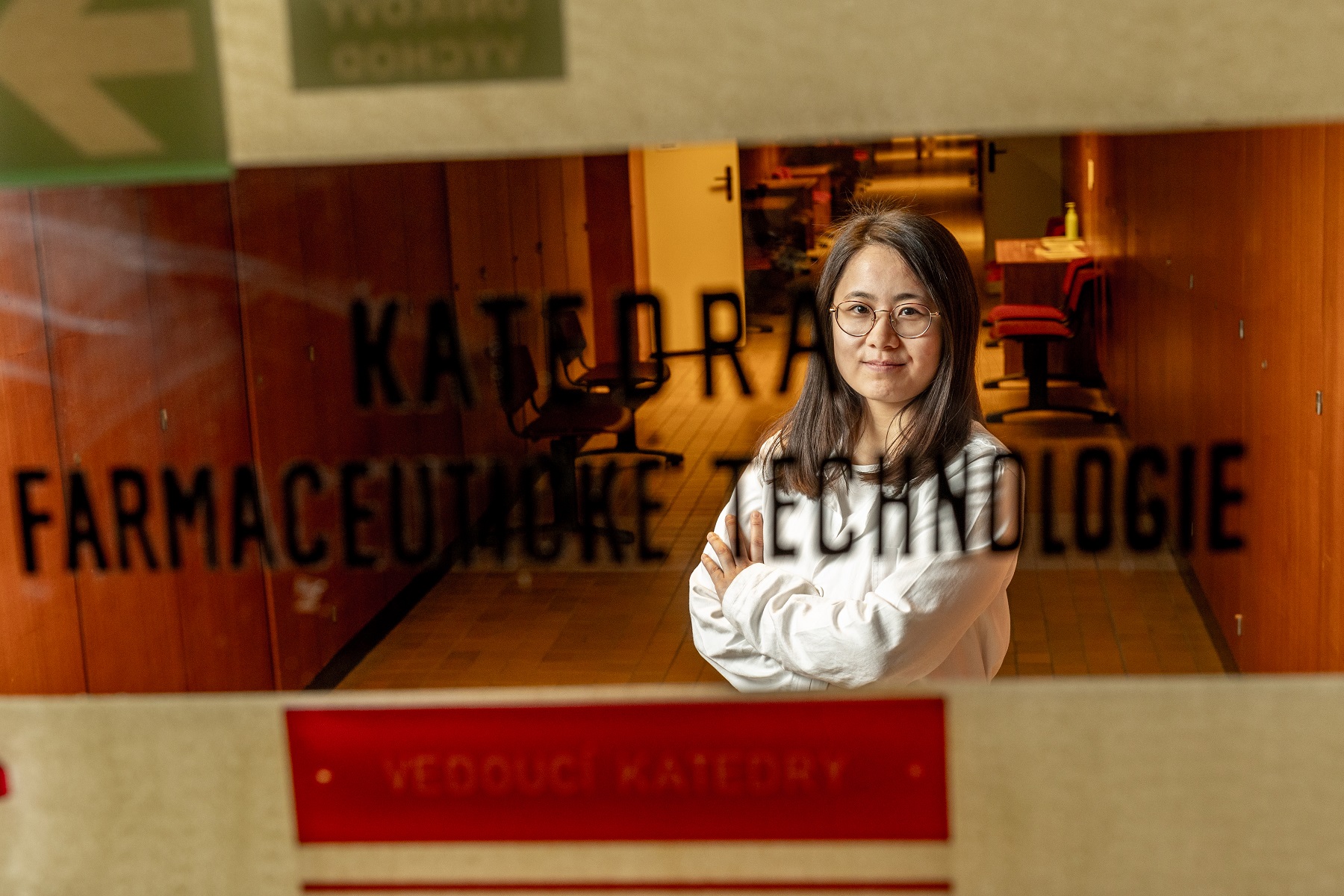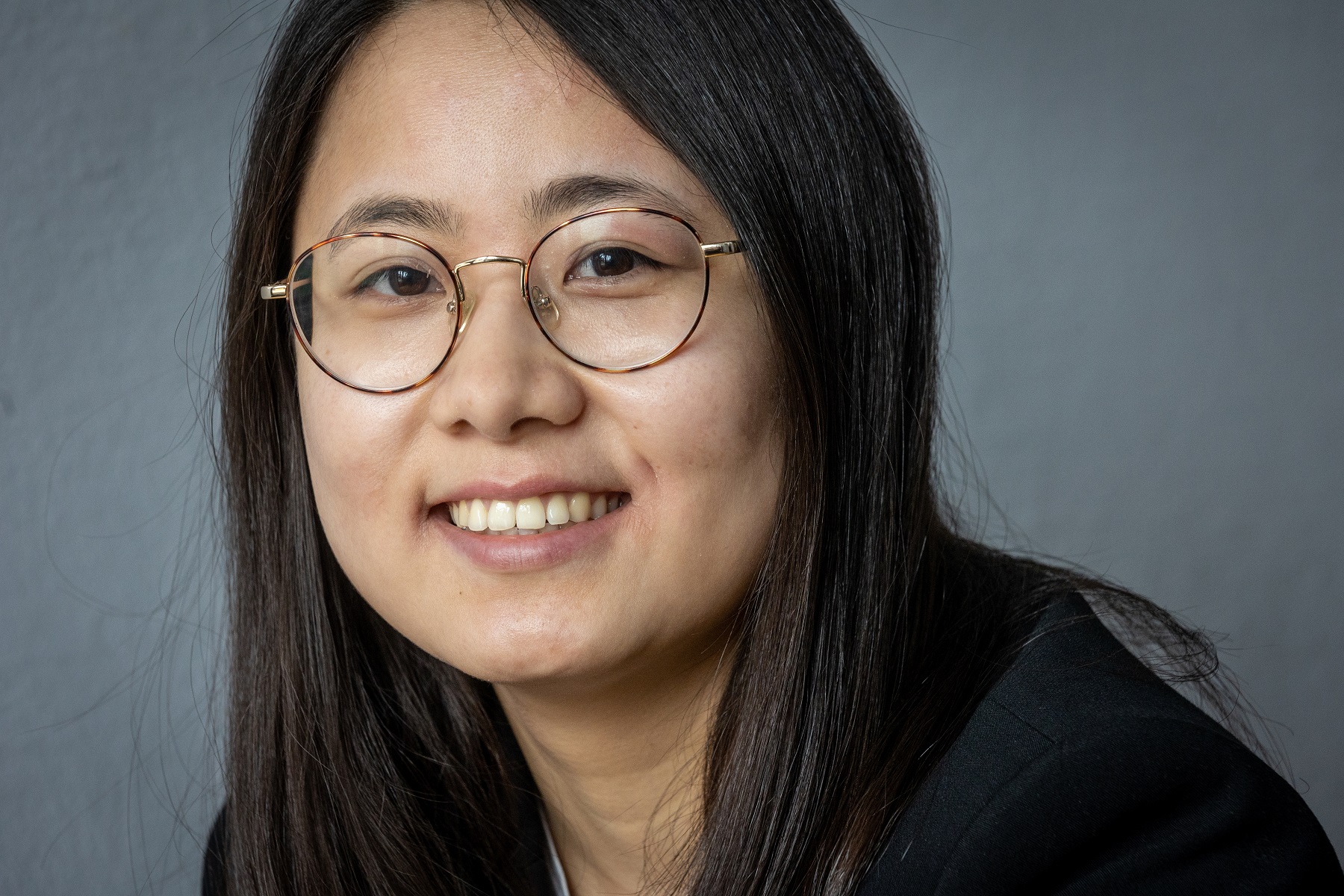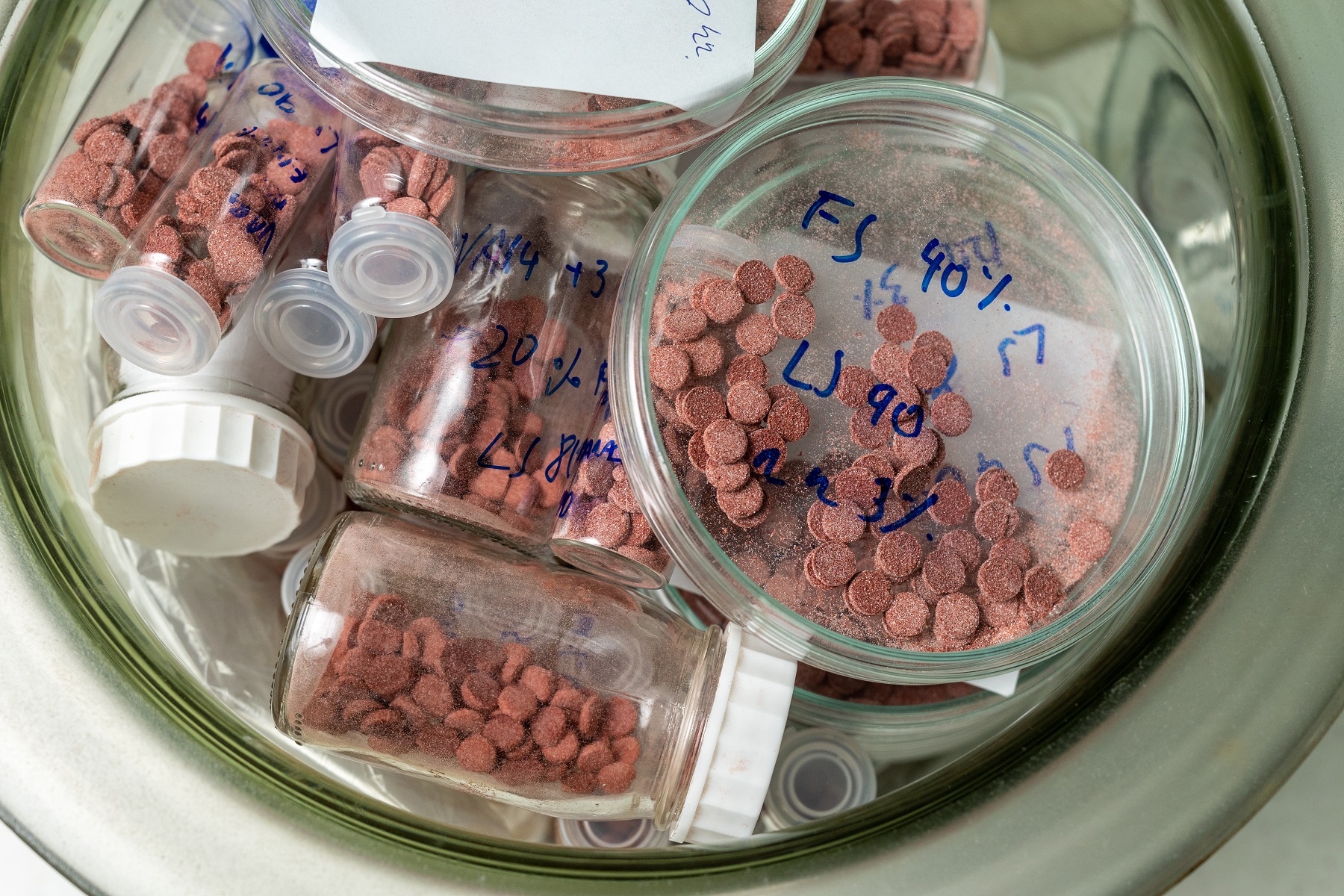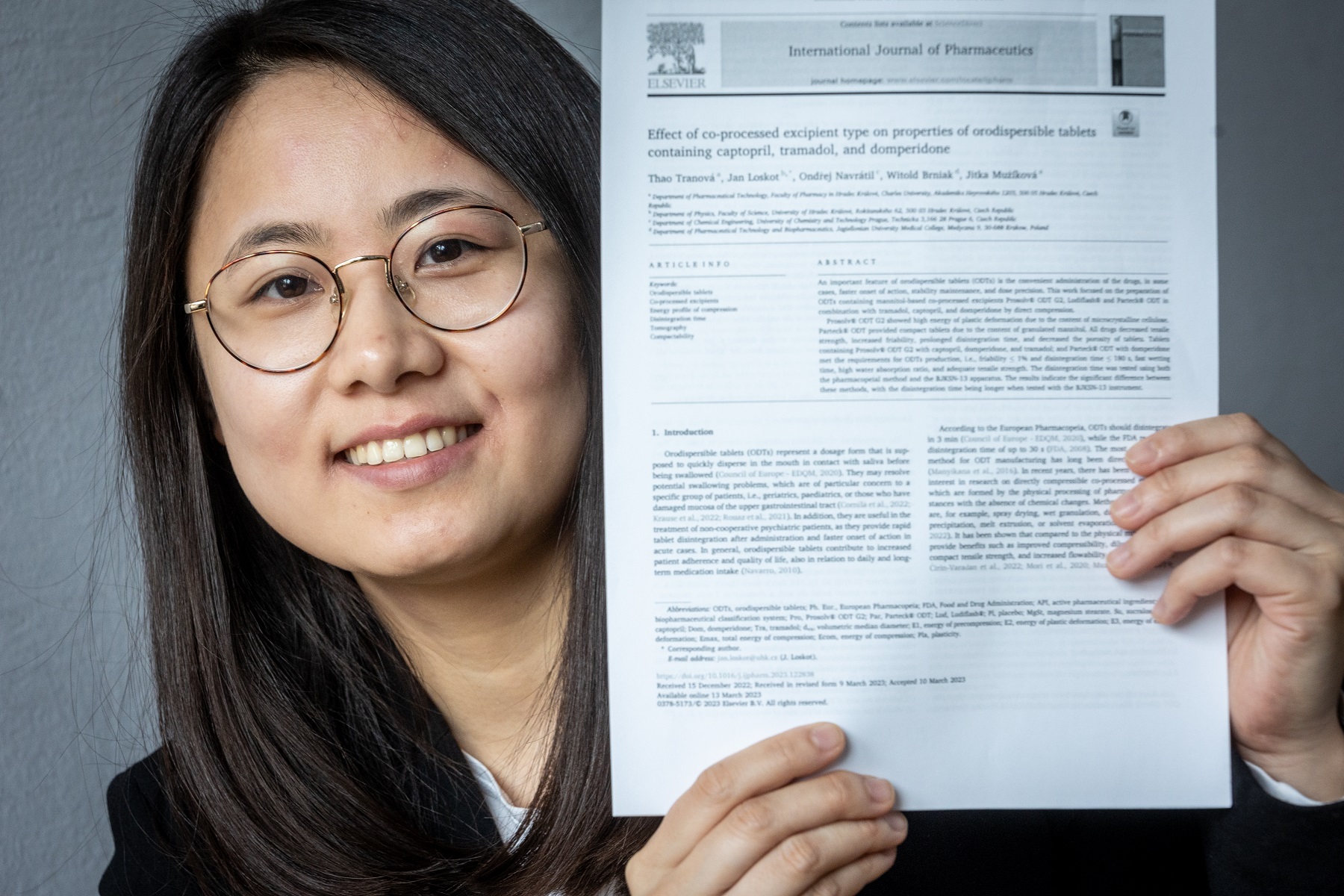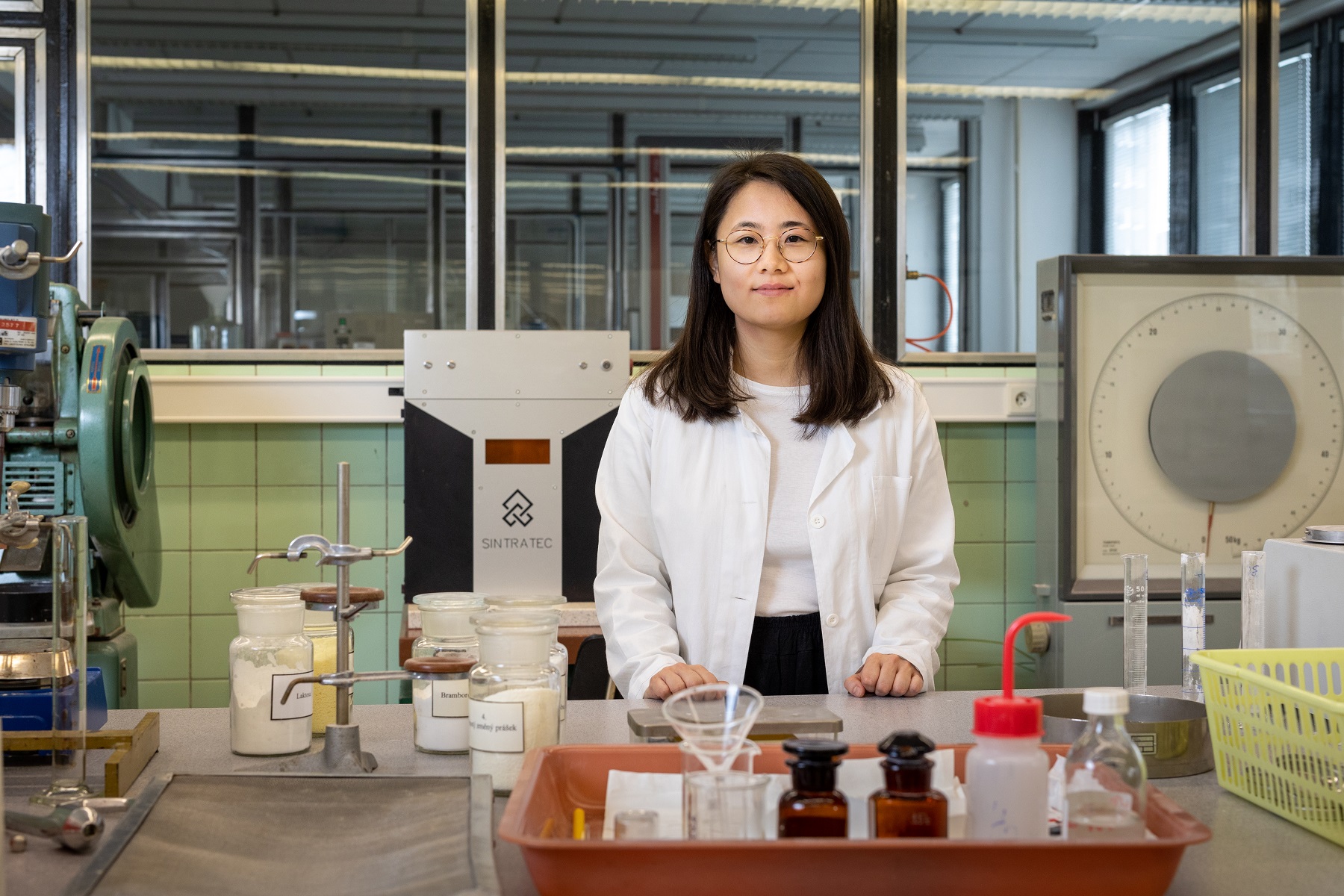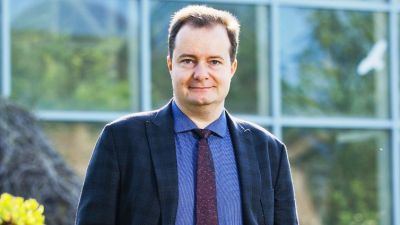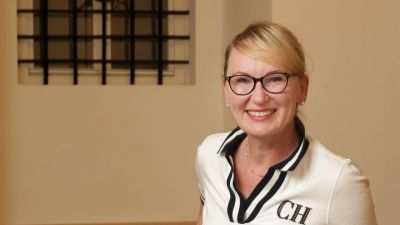“In addition to scientific research, I also work in a pharmacy, and often hear from elderly patients how hard some medical tablets are for them to swallow. That is why I focused my research on developing tablets that disperse in the mouth. I see a lot of potential and therefore purpose in my scientific work,” says Thao Tranová, a postgraduate student at the Faculty of Pharmacy at Charles University.
Thao Tranová has been the lead author of numerous articles published in prestigious international journals and the 2023 winner of The Parc Awards in the Student Choice Award category, which is announced annually by The Parc – a science and technology cluster founded by pharmaceuticals company, Zentiva.
She spoke to Forum about her success and decision to go into the field.
Why did you decide to go into pharmacy?
I have always enjoyed chemistry and biology, and at the same time I wanted to be in a field useful to society. So pharmacy seemed like a good choice. I was also close to the field thanks to my mum.
Ah, you got it from her?
My parents immigrated from Vietnam to what was then Czechoslovakia at a very young age. My mother graduated from the University of Engineering and Textiles in Liberec (now the Technical University of Liberec – ed. note) and graduated with a red diploma. It was always important for her to help people. Because she spoke Czech, she decided to interpret and translate for her compatriots. She would accompany them to the doctor, to hospitals…
What about official bureaux?
That’s where my dad went. My mother, because she was in the medical field, motivated me to go in this direction. It was instilled in me from a young age. After high school, I applied to pharmacy, medicine, the Faculty of Science as well as the University of Chemistry and Technology Prague, and finally decided on pharmacy.
When did the turning point come when you learned you preferred science and research to working in a pharmacy?
When I was doing my thesis. In my fourth year, I decided to do it at the Department of Pharmaceutical Technology and I found that I enjoyed scientific work. Since then, I have been getting closer and closer to science and slowly finding my way. Subsequently, Associate Professor Jitka Mužíková offered me to continue my doctoral studies at the faculty.
What did you focus on in your thesis?
I investigated the effect of different excipients on the properties of high-dose tablets. I collaborated with Zentiva, which I saw as an enrichment, an insight into practice and an introduction to the possibilities offered by the current pharmaceutical industry.
Why tablet research?
It was an opportunity that was offered, the idea came from Zentiva. Tablets are one of the most common dosage forms. The manufacture of a tablet seems easy at first glance, but technologically there are a lot of interesting moments and development phases to research. In my thesis, I looked at the different effects of excipients on the properties of the tablets and did basic tests, for example whether a tablet meets a certain hardness or whether it disintegrate fast enough. I investigated high-dose tablets, which are not entirely common so the excipient also had a significant effect on the functioning of the tablets.
In my doctoral studies, I then started to look at a different type of tablet, namely orodispersible tablets, which disintegrate quickly in the mouth. I worked on formulations with different drugs that are suitable for these types of tablets. The fact that they disintegrate quickly in the mouth and can only be swallowed with saliva means that they do not even need to be swallowed, really. They are suitable for patients with trouble swallowing, such as the elderly or children or patients after chemotherapy.
These tablets are not yet completely common on the market, which makes their future all the more interesting.
Exactly. I work part-time in a pharmacy, so I’m in fairly frequent contact with patients, and I hear complaints, especially from older clients, about how hard some tablets are to swallow and hear they’d prefer the medicine in another form. For this reason, I wanted to focus my research on dispersible tablets in the mouth, where I see a lot of potential. That is the purpose of my scientific work.
For your research, you received a Parc Award from the Centre for Applied Pharmaceutical Research, which was founded by Zentiva in collaboration with Czech academic institutions. What has this given you in practical terms?
It’s been a great and incredibly rewarding opportunity for me to collaborate with colleagues from other departments. Moreover, Zentiva has excellent instrumentation facilities that I can use within The PARC (Pharmaceutical Applied Research Center). Within PARC, I am working on the preparation of spray-dried materials for use in orodispersible tablets. My expert consultant is engineer Petr Koukal from Zentiva. PARC symposia are held three times a year where I present my results and get feedback on my work from industry experts, academics and fellow PhD students from other departments. This also pushes me further and opens the door to inter-faculty and inter-university collaboration.
How specifically can people from other disciplines help you in your research?
For example, if I need to use a method that is unavailable to me, I contact a colleague from another department, who is familiar with the approach and has the necessary equipment. This then leads to co-authoring teams for publications that can be successful in prestigious international journals.
What are you most excited about at the moment?
Earlier this year, a paper published in the prestigious International Journal of Pharmaceutics. It describes the preparation of orodispersible tablets by direct compression, using co-processed excipients and three different drugs that are suitable for orodispersible tablets because of the potentially rapid onset of action of the drug. Interestingly, to assess disintegration time, an apparatus was used that mimicked mouth conditions – that is, a small amount of water was used, and the apparatus also mimicked chewing, palate or tongue movement, which helped us to see how the tablet might realistically behave in a person’s mouth. This device was built by my consultant from my internship at Jagiellonian University, Witold Brniak. Therefore, the paper was written in collaboration with Jagiellonian University and the University of Chemistry and Technology Prague. With Ondřej Navrátil, who I met through PARC and the University of Hradec Králové with Jan Loskot, with whom I have been collaborating since the beginning of my postgraduate studies.
How long were you based at Jagiellonian University?
I went on a three-month internship during the summer holidays, at the end of my first year of PhD studies.
So there were no classes, and the academics there had time to devote to you?
That’s right. I just hit the period between semesters, when it’s mostly science, because there’s plenty of time to do science. So every day we could consult the results, strategise…It taught me the importance of teamwork. When I started graduate school, it was my wish to try to make tablets using 3D printing, and the workplace in Krakow had this technology in place. That’s why I chose it for my internship. However, tablets dispersible in the mouth were not being developed at that time. Nevertheless, we started working on this topic collectively and the result was a publication in an international scientific journal. The combination of our idea and the experience of Polish experts really produced results.
You already have had a lot of success: The Parc Awards, articles in prestigious scientific journals, presentations at international symposiums… This is certainly not common for a third-year postgraduate student in pharmaceutical technology. Or is it?
If I were to compare myself with my classmates, I think we all give our best to our work. But maybe the reason for my quick success is my background from high school. I graduated from the Czech-German Thomas Mann High School in Prague, where we spent a lot of time writing term papers and presentations, even in German. I think I still benefit from this intensive and very good foundation. The good and pleasant cooperation with my supervisor, consultants and all my collaborators in the field of my scientific work is certainly a part of it.
Working in the lab, at the computer, writing papers, conferences… Where do you find the time?
I admit, it’s a wild ride. Since I started graduate school, I’ve had to learn to work really fast and efficiently. But on the other hand, I have to rest just as deliberately. For example, it’s great to clear my head when I play sports. There’s not much time to relax, but still you have to find it.
| Thao Tranová |
| Thao Tranová is a postgraduate student in her third year of the Pharmaceutical Technology program and member of the scientific group Drug and Drug Formulation and Carriers at the Faculty of Pharmacy, Charles University. She is working on her PhD thesis entitled Orodispersible tablets. She also works part-time in a pharmacy in Jablonec nad Nisou. She is the lead author of articles in prestigious pharmaceutical publications including the International Journal of Pharmaceutics. She also co-authored papers at two international symposia in Slovenia and the Netherlands in 2022. The papers were written during her internship abroad at the Faculty of Pharmacy, Jagiellonian University in Krakow. This year, she won a Parc Award in the Student Choice Award category. |


